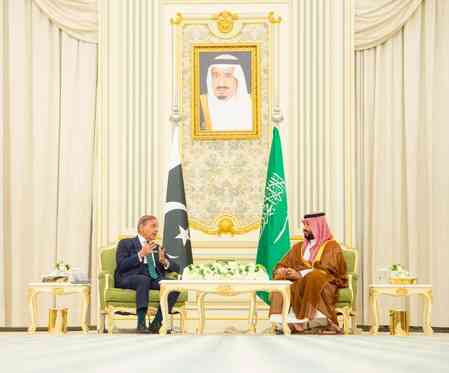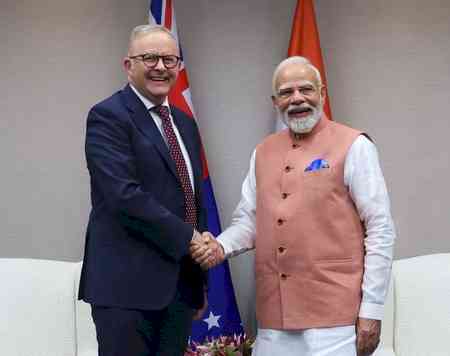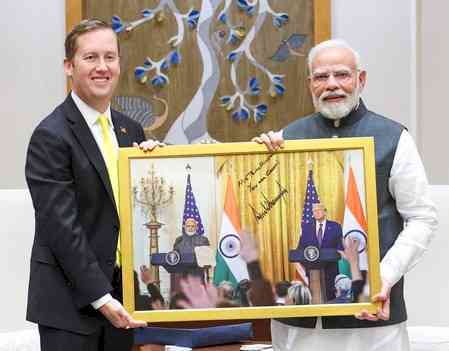Saudi Arabia-Pakistan pact showcases asymmetric alliance as 'junior partner' bears heavier load: Report
Highlighting the defence agreement signed recently between Saudi Arabia and Pakistan and also the comprehensive strategic partnership signed between Russia and North Korea in 2024, a report detailed on Tuesday that beneath the solidarity lies asymmetry in both the pacts with "junior partners" North Korea and Pakistan seem to be providing military support which the "senior partners" Russia and Saudi Arabia may not reciprocate in future.

Toronto, Sep 23 (IANS) Highlighting the defence agreement signed recently between Saudi Arabia and Pakistan and also the comprehensive strategic partnership signed between Russia and North Korea in 2024, a report detailed on Tuesday that beneath the solidarity lies asymmetry in both the pacts with "junior partners" North Korea and Pakistan seem to be providing military support which the "senior partners" Russia and Saudi Arabia may not reciprocate in future.
On September 17, Saudi Arabia and Pakistan signed defence agreement in Riyadh, declaring that "any aggression against either country shall be considered an aggression against both. Pakistan’s Defence Minister Khawaja Asif reportedly also told media outlet that Saudi Arabia could get access to Pakistan's nuclear programme, if required, after the signing of the agreement.
"With the pact, Pakistan stands to gain economically — Saudi investments could alleviate Islamabad’s chronic balance-of-payments woes — and politically, as the pact signals Riyadh’s enduring commitment amid Pakistan’s balancing act between the US, China, and the Muslim world. Yet, the expectations appear tilted toward Pakistani contributions. Pakistan has deployed troops to Saudi Arabia during past crisis, such as the 1979 Grand Mosque seizure and Yemen conflicts, and could do so again to safeguard the kingdom’s oil fields or holy sites. In a worst-case scenario involving an Iranian or Israeli attack, Islamabad might even extend its nuclear umbrella to Saudi Arabia, besides conventional forces. Conversely, Saudi reciprocity may fall short," Nitin J Ticku wrote in an opinion piece for The EurAsian Times.
Citing experts, the author noted that the agreement is "more symbolism than substance," a political move against the US' reducing influence in the Middle East instead of a blueprint for mutual sacrifice.
"If Pakistan faced an existential threat — such as escalation along the Line of Control with India — Saudi intervention would likely be limited to diplomatic support or financial aid, not boots on the ground. The parallels between Russia-North Korea and Saudi-Pakistan pacts are uncanny, revealing a pattern in asymmetric alliances where junior partners bear the heavier load. Both North Korea and Pakistan, with troubled economies but powerful militaries, leverage their might to secure patronage from resource-rich allies," wrote Ticku.
"Russia extracts military and munitions from Pyongyang to sustain its war machine; Saudi Arabia gains a nuclear backstop from Islamabad to deter Iran and Israel, while mainly offering economic lifelines in return. This dynamic echoes Cold War-era pacts, like the US-South Korea alliance, but inverted: here, the 'senior' partner (Russia/Saudi) dictates terms from a position of relative strength, leaving the junior one exposed," he mentioned further.
--IANS
akl/as



 IANS
IANS 










